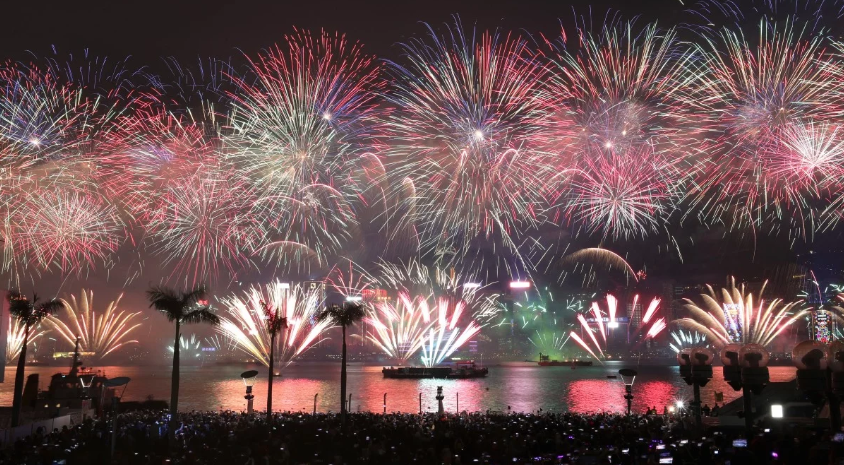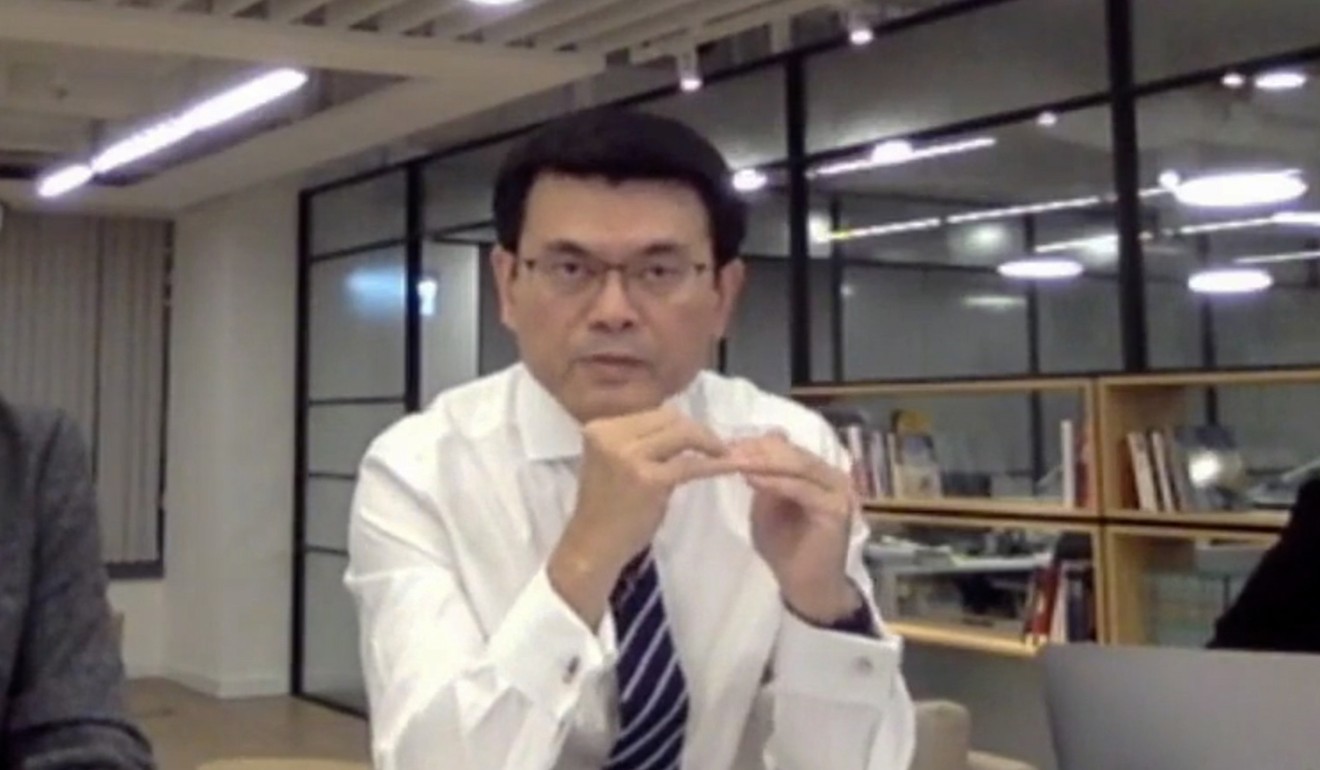Traditional Hong Kong New Year’s Eve fireworks cancelled over protest fears

By Denise Tsang and Clifford Lo From South China Morning Post
- Police oppose large-scale event fearing for public order and safety amid months of often-violent unrest
- Organisers say safety is top priority and promise enhanced light show and fireworks launched from skyscrapers rather than harbour barge
Hong Kong’s traditional New Year’s Eve fireworks display has been cancelled for the first time in its 10-year history after police – citing a security threat posed by anti-government protests – opposed the showpiece event, adding to a series of hammer blows against city’s ailing economy.Organisers from the Hong Kong Tourism Board revealed on Tuesday that the fireworks show for December 31 over Victoria Harbour had been called off, even as they announced a 56 per cent drop in tourist figures for November. That same day, the city’s flagship airline reported a 46 per cent plunge in passenger arrival numbers and the jobless rate in the food and beverage industry surged to a seven-year high.A police source said senior officers had serious concerns over whether an event attracting hundreds of thousands of revellers could be held safely amid the often-violent social unrest that has gripped the city since June.
The show is set to be replaced in part by pyrotechnics released from city rooftops on a much smaller scale than those launched annually from a barge in the harbour.
“Public safety is our top priority as the fireworks can attract huge crowds gathering around the harbour,” Tourism Board chairman Pang Yiu-kai said.
Six months of anti-government protests and turmoil have sent tourist numbers plummeting and led to the cancellation of major events, including the Clockenflap music festival, the Hong Kong Tennis Open and the Wine & Dine Festival.
The Lunar New Year parade in January will also be replaced by a carnival after it was deemed too risky to hold the event through an area of Kowloon that is among the worst affected by chaotic protests.S
The police source said officers had raised grave concerns to government departments and others involved in organising the event as to whether it could run smoothly when the authorities were struggling to maintain law and order.
“The social unrest has not ended. Any violent act could descend into chaos and put the safety of revellers in danger,” the source said.
Tourism Board executive director Dane Cheng Ting-yat said an enhanced version of the Symphony of Lights – the daily visual show beamed from both sides of Victoria Harbour – would be held instead on New Year’s Eve, and the countdown could be watched on smartphones via live streaming.
The board is still negotiating with landlords over which buildings can host the rooftop fireworks.
Last year’s fireworks and light show, sponsored by the Bank of Communications, cost HK$14 million (US$1.8 million).
Tourism, one of Hong Kong’s pillar industries, has taken a massive hit because of the protests, which were first sparked by the now-withdrawn extradition bill but have developed into a wider anti-government movement. The US-China trade war has also played a role in pushing the city into a recession.
New numbers on Tuesday showed Hong Kong’s tourist arrivals plunging 56 per cent year on year to 2.65 million in November, the sharpest fall since April 2003, when the city was plagued by the severe acute respiratory syndrome (SARS) epidemic.However, figures for November 2018 were boosted by the opening of the Hong Kong-Zhuhai-Macau Bridge and the Guangzhou-Shenzhen-Hong Kong Express Rail Link.
Cathay Pacific Airways revealed more of its problems on Tuesday, reporting that inbound passenger numbers shrank 46 per cent year on year last month, following a 35 per cent contraction in October.
The total number of passengers carried was down 9 per cent at 2.62 million in November, continuing a four-month losing streak.
The airline’s chief customer and commercial officer Ronald Lam Siu-por said that the rest of 2019 remained “incredibly challenging”.
New figures published by the government on Tuesday showed the unemployment rate in tourism-related industries hit a three-year high of 5.2 per cent in the three months to November.
The jobless rate in the food and beverage sector jumped to 6.2 per cent during the September-to-November period, the highest in more than eight years.
The overall unemployment rate rose to 3.2 per cent.
Cheng said the Tourism Board would test overseas demand for visiting the city through an online platform called “Hong Kong Is On”, which would showcase various offers and discounts from airlines, restaurants, hotels and retailers.
“We can’t do nothing and wait for a completely restored situation before launching any marketing campaign,” Cheng said. “Hong Kong is not dangerous, it’s only inconvenient.”
Lawmaker Yiu Si-wing from the tourism sector expressed shock over the latest numbers.
“There is little room for a rebound in the near term, and the tourism downturn has seriously affected the city’s economy,” he said. “Visitors may still feel it is unsafe and inconvenient to come to Hong Kong and they have options in other destinations.”


Commerce minister Edward Yau during a Facebook live session. Photo: HK01 Facebook Live
In a 50-minute Facebook live session on Tuesday, commerce minister Edward Yau Tang-wah repudiated the “yellow economic circle”, a term coined by protesters to promote patronage only of businesses supporting their movement – as opposed to “blue circle shops” preferred by those who back the government and police.
“It is not how Hong Kong operates. We are a free society. People should not decide whether to shop at a place or not based on its political stance,” he said.
“If we believe in a free market, who is there to decide which is a yellow shop and which is not? Shops should compete among themselves by the quality of their services.”
Meanwhile, the MTR Corporation said it would add 700 trains during the Christmas and New Year period, with services running overnight on Christmas Eve and New Year’s Eve.
However, the operator warned that train frequency and station services could be adjusted depending on crowds and public events to maintain the safety of passengers and employees.
Additional reporting by Danny Lee and Ng Kang-chung





